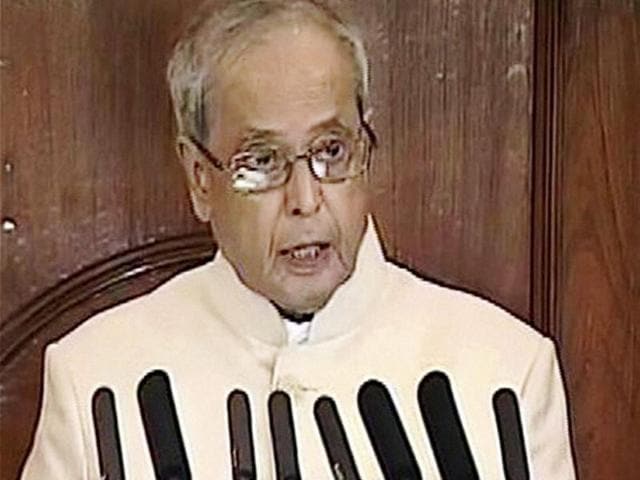Prez Mukherjee points to India’s support to China’s inclusion in global bodies
India and China have areas of differences but it has always been New Delhi’s attempt to reduce the divergence and expand cooperation with Beijing, President Pranab Mukherjee said on Tuesday .
India and China have areas of differences but it has always been New Delhi’s attempt to reduce the divergence and expand cooperation, President Pranab Mukherjee said on Tuesday as he began his four-day visit to the country.

“The basic cardinal principle of India’s foreign policy is to recognise divergences…we have never indulged in expanding the divergences but reducing the divergences and expanding the areas of agreement,” Mukherjee said in his address to around 400 members of the Indian diaspora in Guangzhou, the capital of Guangdong province.
Indirectly referring to China’s decision to block India’s inclusion in the Nuclear Suppliers Group (NSG), Mukherjee said India had always supported Beijing’s inclusion in international organisations.
India, he said, believed that China’s presence must be there in multilateral organisations as otherwise a huge population will be left unrepresented.
Read: President Pranab Mukherjee’s visit to China will foster strategic trust
He said cooperation between India and China was expanding in almost every field – economic and political – and in various bilateral and multilateral fora.
Mukherjee said the development of Sino-India relations has been “phenomenal” in the last two decades, adding that bilateral trade has gone up from around $ 2.9 billion in 2000 to more than $ 71 billion last year.
”But we are not satisfied because we do believe there is immense potential for trade and investment between the two countries,” he said.
Mukherjee’s visit takes place even as the two giant neighbours continue to negotiate old and new disputes amid the promise of closer economic ties and narrowing diplomatic differences. For one, the dispute over the 3,488-km border continues to cast a shadow over bilateral relations.
Mukherjee is heading a delegation that includes the minister of state for textiles, SK Gangwar, four Members of Parliament, diplomats and journalists. The President said his delegation represented the “multi-party democratic system of India.”
After delivering a keynote address at a business forum in Guangzhou on Wednesday, Mukherjee will fly to Beijing for a series of bilateral meetings with top Chinese leaders, beginning with President Xi Jinping.
Mukherjee said Prime Minister Narendra Modi and President Xi Jinping will have the opportunity to meet each other and share their views at the G20 summit, to be held in the Chinese city of Hangzhou in September.
China and India, he said, are among the advanced emerging economies and have contributed to the world’s output in trade and investment.
“Chinese economy is many folds larger than ours but at the same time we have the potential,” Mukherjee said.
India and China need to share best practices, share developmental experience, he added.
He appealed to the Indian diaspora of about 45,000 in China to take part in the government’s programmes like Make in India and Digital India.
Commenting on Mukherjee’s visit, Professor Zhu Cuiping from the Research Institute for Indian Ocean Economies, Yunnan University, said his experience and stature were important factors.
“China and India established the bilateral defence dialogue mechanism during President Mukherjee’s visit to China in 2006 as defence minister. He also visited China and delivered a lecture in Peking University in 2008 as a foreign minister. His rich experiences including work as finance Minister, defence minister as well as foreign minister in the past years means this visit is significant for bilateral relations rather than just a symbolic visit,” Zhu said.





